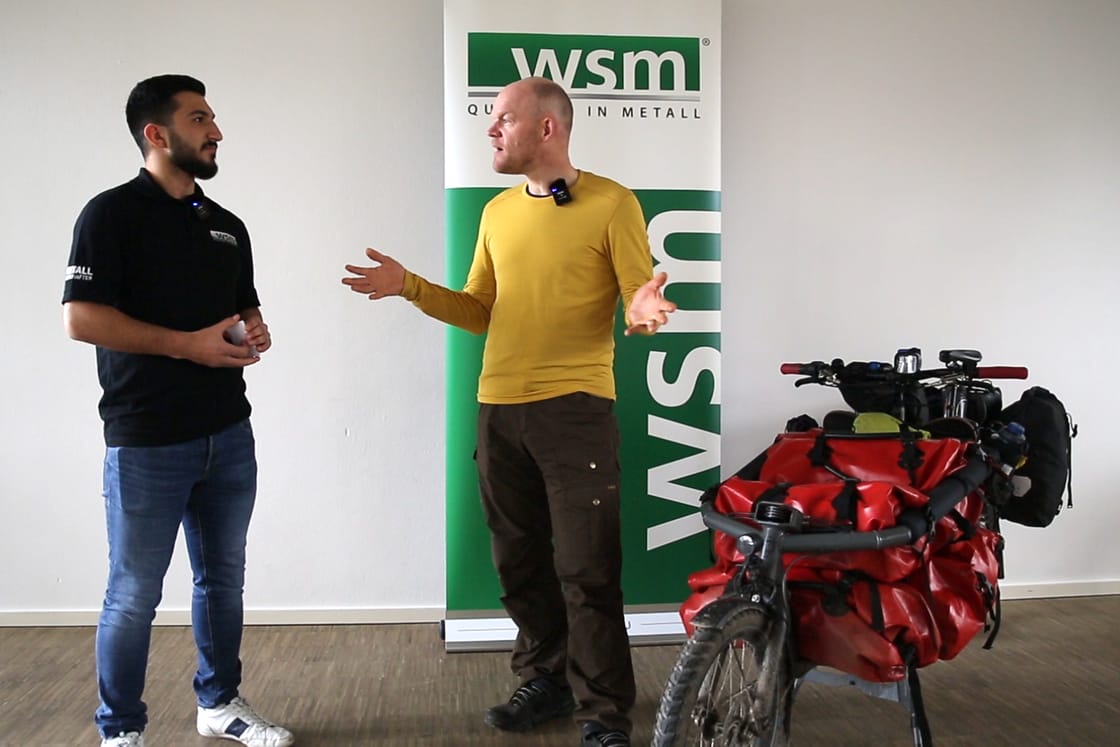With Gunnar Fehlau on the bike: Bootcamp-Bike at WSM
When renowned bike expert Gunnar Fehlau stopped by on his “workpacking tour,” we knew we didn’t want to miss this opportunity. Under his expert guidance, we experienced an intensive bike boot camp that not only highlighted the history and development of the bicycle, but also provided deep insight into current trends and developments. This article is the result of the insights and impressions of this fascinating workshop. Pedal with us and discover the world of cycling from a whole new perspective!
The evolution of the bicycle: from inventiveness to a new culture of use
When an innovative two-wheeler was presented at the World’s Fair in Paris in 1867, there was great astonishment. Frenchman Pierre Michaux had a vision of a giant front wheel with metal spokes and pedal crank. A bold concept that, despite all the risks, made revolutionary, powerful locomotion possible – a leap forward since Karl von Drais had invented the running wheel half a century earlier. Over time, technology and design refined, and as early as 1927, a bicycle with electric drive rode through the streets.
Renowned bicycle expert Gunnar Fehlau emphasizes that the bicycle today appears technologically mature. As a means of transportation, however, it still has a lot of potential.
From freedom symbol to leisure attraction and back again
At the beginning of the twentieth century, the bicycle gave women a sense of independence and mobility. Within a short time, it transformed from an exclusive pleasure for the upper class to a means of transportation for the masses. For Fehlau, it symbolizes the “freedom machine” that characterizes our modern society.
Nevertheless, the bicycle experienced a loss of status after World War II, mainly due to motorization and the emergence of cycling. But with the oil crisis in the 1970s and modern electrification, around the year 2000, the bicycle began to reclaim its place at the center of mobility. “Since 2017,” Fehlau said, “we’ve seen a new cycling boom.”
Technical masterpiece with space for culture
With modern developments such as hub dynamo, LED lighting, sophisticated gears and battery electric motors, the bicycle has reached its technological zenith. For Fehlau, however, choosing the ideal bike is a “cultural technique.” The future of the bicycle depends not only on technological breakthroughs, but also on a “new culture of use,” he said.
Challenges and potentials of the modern transport world
In our car-dominated world, the bicycle is often marginalized. Most transportation experts, including Fehlau, agree that the continued development of cycling depends on revising road regulations and creating bicycle-friendly infrastructure. Better roads, fewer barriers, and adequate parking facilities are needed to positively change the “culture of use” of bicycles. Fehlau is optimistic that bicycle mobility is only at the beginning of a new upswing.
